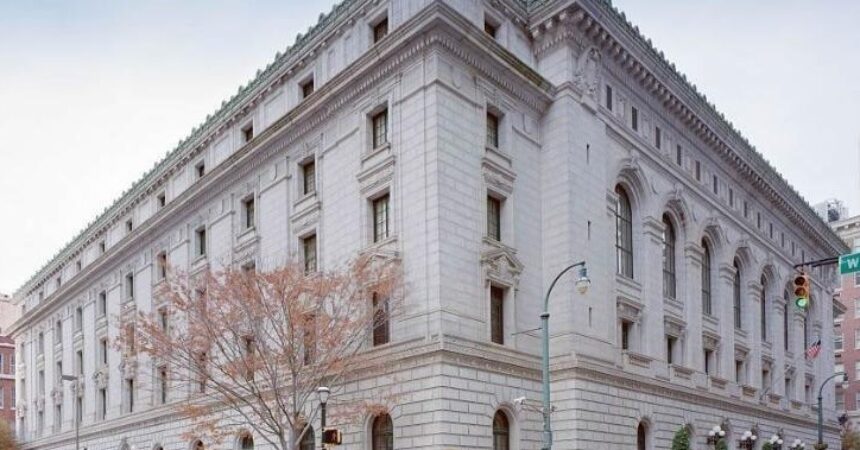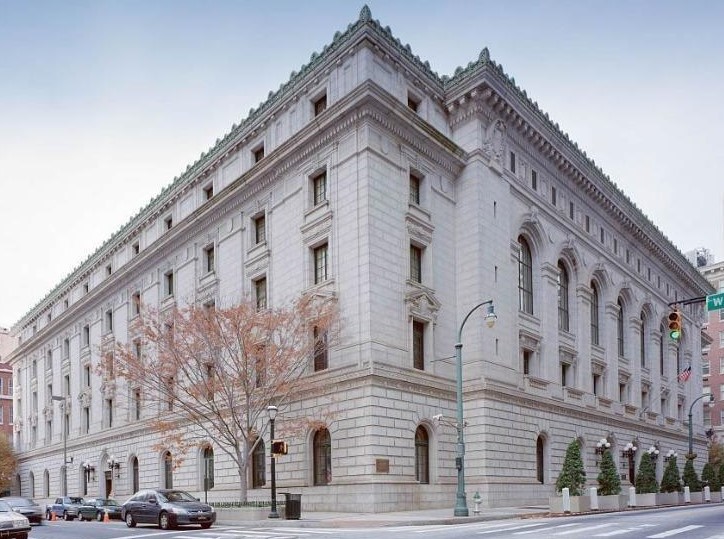
Court rejects considering new report in Epstein case

Photo special to the Outlook
By Dara Kam
News Service of Florida
New information released in a U.S. Department of Justice report last week shouldn’t be considered in a lawsuit by one of Jeffrey Epstein’s victims that seeks to undo a non-prosecution agreement that allowed the notorious sex offender to avoid federal charges, an appeals court ruled last Wednesday.
The full 11th U.S. Circuit Court of Appeals is slated to hear arguments on Dec. 3 in a lawsuit filed 12 years ago by Courtney Wild, a Florida woman who as a teen was among Epstein’s numerous underage sexual-abuse victims.
Wild’s lawyers this week told the court that the report by the Department of Justice’s Office of Professional Responsibility, two years in the making, sheds new light on the government’s handling of Epstein, a wealthy financier who owned homes in Florida and elsewhere and who died in a New York jail last year.
Wild is fighting a non-prosecution agreement struck by former South Florida U.S. Attorney Alex Acosta, who over a decade ago worked with Epstein’s lawyers to craft a deal allowing Epstein to sidestep federal charges. Under the agreement, Epstein pleaded guilty to two state prostitution charges in Florida, including procuring a minor for sex. The plea deal also provided immunity from federal prosecution for Epstein, four other named co-conspirators and “any potential co-conspirators.”
Wild’s lawyers maintain the non-prosecution agreement violated her rights under the federal Crime Victims’ Rights Act to be able to confer with the government’s lawyers and be treated fairly by them. Government lawyers maintain the act did not apply because no federal charges were filed against Epstein.
The full Atlanta-based appellate decided to hear arguments in the case after reversing a three-judge panel’s April ruling. The panel concluded that, although the facts of the case were “beyond scandalous” and a “national disgrace,” the agreement did not violate the federal victims’-rights law.
The 11th Circuit last Wednesday refused Wild’s request to add the 287-page report to the case record, saying the court’s reconsideration of the case was limited to two issues: whether the victims’ rights act applies before charges are filed against a defendant and, if so, whether violations of the act can be enforced with an independent court action.
Although the court rejected the admission of the report, Wild’s legal team remained upbeat.
“We’re actually pleased that today’s ruling narrows the case down to two issues, because we think those are two issues where the statute and the legislative history make it absolutely clear that the victims should prevail in this case,” University of Utah law professor Paul Cassell, who joined Fort Lauderdale attorney Brad Edwards in Wild’s legal battle shortly after her lawsuit was filed 12 years ago, told The News Service of Florida in a phone interview.
The report found that Acosta used “poor judgment” in striking the non-prosecution agreement with Epstein’s lawyers, showed that the government failed to provide documents to Wild’s attorneys and revealed the Justice Department’s views on how Acosta treated Epstein’s victims, an element that plays a critical role in Wild’s lawsuit.
Acosta served for two years as secretary of labor in President Donald Trump’s administration, but he resigned last year amid criticism of his handling of the Epstein agreement.
An addendum to the report revealed a “data gap” in Acosta’s email inbox from May 2007 through April 2008 — “the exact time period Mr. Acosta was most deeply involved in negotiating and approving the Epstein NPA (non-prosecution agreement),” Wild’s lawyers wrote in a motion filed this week.
Government lawyers, who opposed inclusion of the report in the lawsuit, have “raised a whole flurry of other objections against getting to the merits” of the issues in the case, Cassell said.
But if the 11th Circuit sides with Wild on the alleged violations of the victims’ rights law, the missing emails and other information in the report “are immediately ripe” for consideration by the court, he said.
After more than a decade of litigation, U.S. District Judge Kenneth Marra ruled in February 2019 that federal prosecutors broke the law when they struck the plea deal with the multi-millionaire. But after Epstein died last year, the federal judge refused to undo the plea agreement or grant other remedies sought by Wild, who filed the lawsuit as “Jane Doe 1,” and another victim.
“The act promised Ms. Wild and other victims the chance to confer with the prosecutor before any deal was done. That’s what Judge Marra ruled. So if we prevail, what we think should happen is the deal should be invalidated, including the immunity provision which gives immunity not just to the now-deceased Jeffrey Epstein but his co-conspirators,” said Cassell, a former federal judge.







